Superconductors are one major step closer to practical use thanks to new work from Columbia University physicists.



In a paper published in Physical Review C, the ALICE collaboration reports measurements that quantify the transmutation of lead into gold in CERN’s Large Hadron Collider (LHC).
Transforming the base metal lead into the precious metal gold was a dream of medieval alchemists. This long-standing quest, known as chrysopoeia, may have been motivated by the observation that dull gray, relatively abundant lead is of a similar density to gold, which has long been coveted for its beautiful color and rarity. It was only much later that it became clear that lead and gold are distinct chemical elements and that chemical methods are powerless to transmute one into the other.
With the dawn of nuclear physics in the 20th century, it was discovered that heavy elements could transform into others—either naturally, by radioactive decay—or in the laboratory, under a bombardment of neutrons or protons. Though gold has been artificially produced in this way before, the ALICE collaboration has now measured the transmutation of lead into gold by a new mechanism involving near-miss collisions between lead nuclei at the LHC.
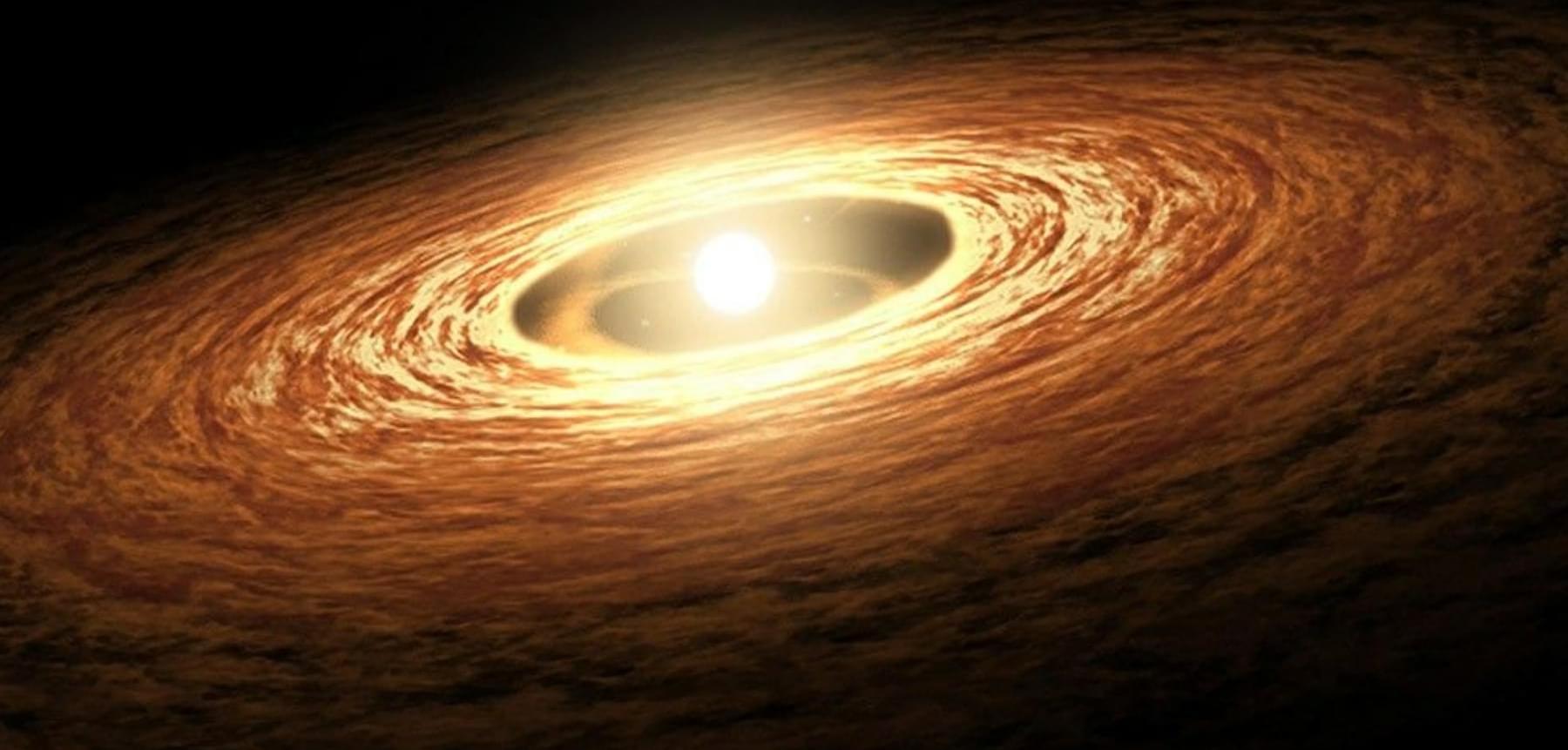
Do we know everything about the Milky Way? A team of astronomers has arrived to change everything we know about our universe, and they have found strong evidence that super-Earths (planets larger than Earth but smaller than Neptune) could be much more common than previously thought! They discovered it thanks to a technique called gravitational microlensing. Don’t worry if you don’t understand it, keep reading and we’ll explain everything.
The study was led by scientists from the Harvard-Smithsonian Center for Astrophysics, and it reveals that one in three stars in the Milky Way could have a super-Earth. Isn’t that exciting?
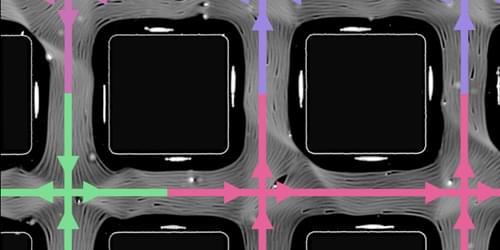
Researchers demonstrate an active-fluid system whose behaviors map directly to predictions of the six-vertex model—an exactly solvable model that was originally developed to explain the behavior of ice.
Active fluids—collections of self-propelled agents such as bacteria, cells, or colloids—consume energy to move, flowing without being pushed [1]. These materials break the conventional rules of fluid dynamics, as they can flow spontaneously, switch direction without apparent cause, and organize into complex patterns with no external control. Active fluids were initially studied to understand the collective dynamics observed in biological systems. Now they offer a rich playground for exploring nonequilibrium physics. Yet, in the ever-expanding universe of active-fluid physics, it is rare to find an experimental system that maps precisely onto a mathematically exact model.

Scientists from the Faculty of Physics and Applied Informatics at the University of Lodz have published an article on friction in the journal Small. Their research on “bismuth islands” moving on the surface of graphite confirmed the existence of a totally new form of so-called superlubricity—a friction-free contact between two solid bodies.
This discovery could revolutionize the way we design nanoscale machines, and even vehicles, in the future. By understanding these processes, we can create devices that can operate much more efficiently, saving on energy and resources.
Scientists led by Dr. Hab. Paweł Kowalczyk, associate professor at the University of Lodz, have discovered a new phenomenon related to the disappearance of friction—superlubricity. This special phenomenon was observed at the contact of two solid materials, bismuth and graphite.
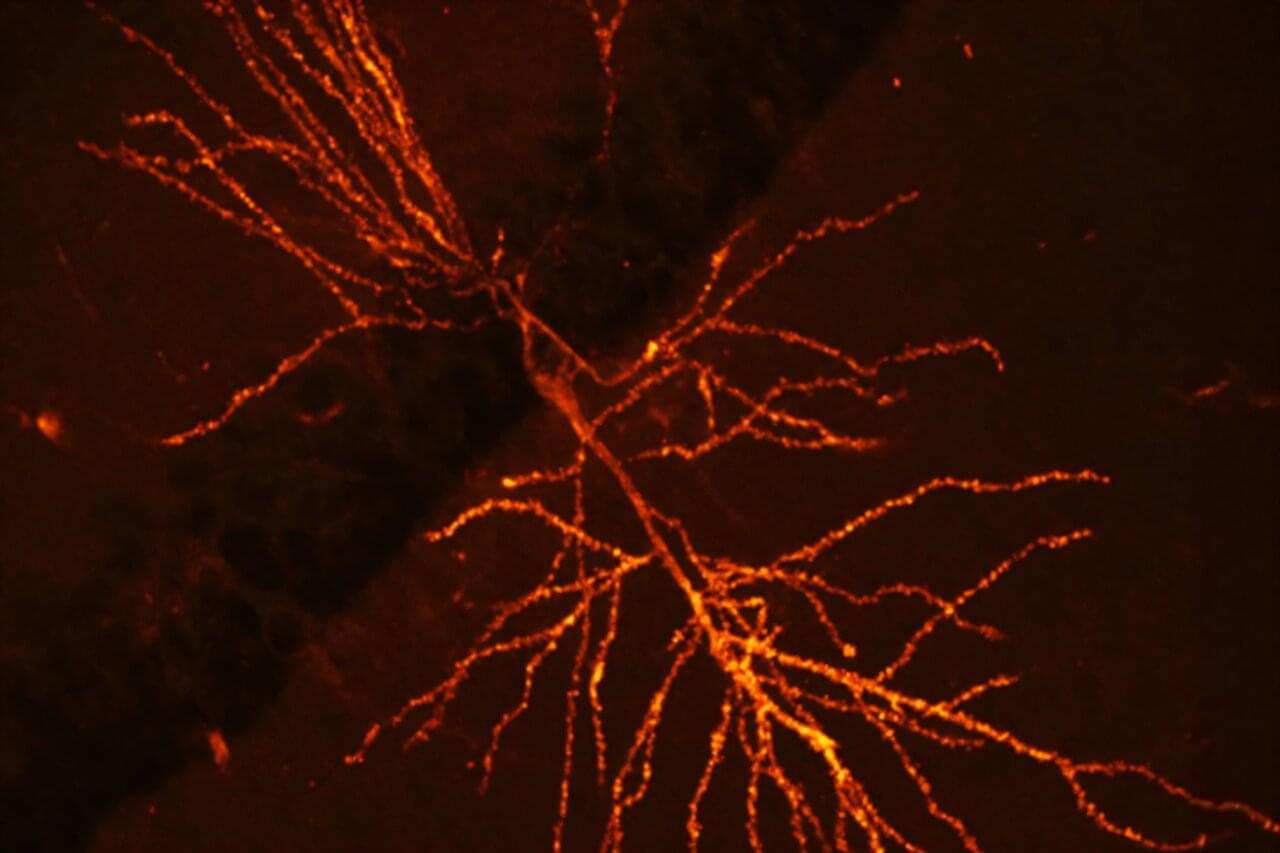
A team of Harvard researchers have unveiled a way to map the molecular underpinnings of how learning and memories are formed, a new technique expected to offer insights that may pave the way for new treatments for neurological disorders such as dementia.
“This technique provides a lens into the synaptic architecture of memory, something previously unattainable in such detail,” said Adam Cohen, professor of chemistry and chemical biology and of physics and senior co-author of the research paper, published in Nature Neuroscience.
Memory resides within a dense network of billions of neurons within the brain. We rely on synaptic plasticity—the strengthening and modulation of connections between these neurons—to facilitate learning and memory.
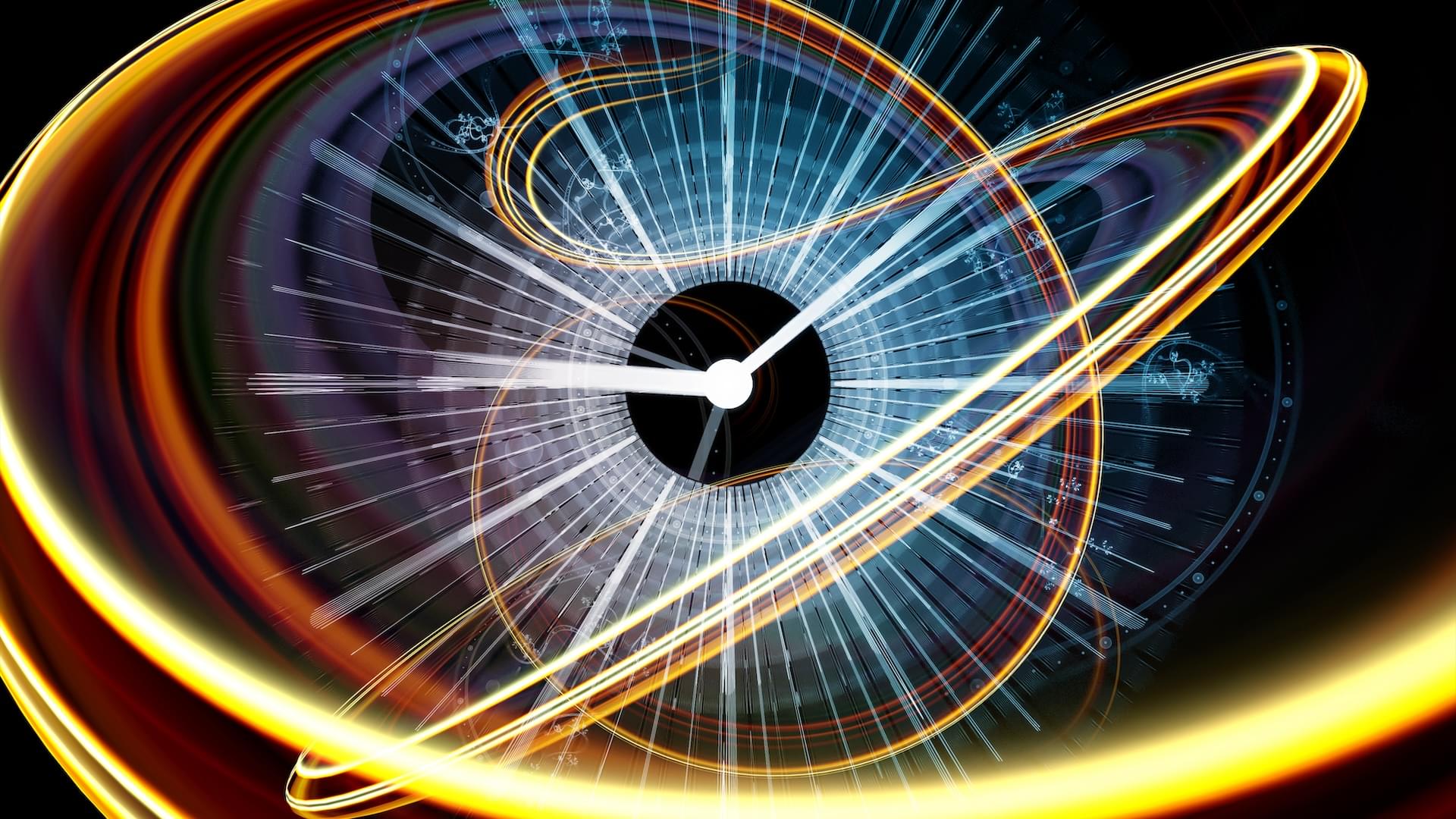
Lex Fridman Podcast full episode: https://www.youtube.com/watch?v=A6m4iJIw_84
Thank you for listening ❤ Check out our sponsors: https://lexfridman.com/sponsors/cv8828-sb.
See below for guest bio, links, and to give feedback, submit questions, contact Lex, etc.
*GUEST BIO:*
Janna Levin is a theoretical physicist and cosmologist specializing in black holes, cosmology of extra dimensions, topology of the universe, and gravitational waves.
*CONTACT LEX:*
*Feedback* — give feedback to Lex: https://lexfridman.com/survey.
*AMA* — submit questions, videos or call-in: https://lexfridman.com/ama.
*Hiring* — join our team: https://lexfridman.com/hiring.
*Other* — other ways to get in touch: https://lexfridman.com/contact.
*EPISODE LINKS:*
Janna’s X: https://twitter.com/JannaLevin.
Janna’s Website: https://jannalevin.com.
Janna’s Instagram: https://instagram.com/jannalevin.
Janna’s Substack: https://substack.com/@jannalevin.
Black Hole Survival Guide (book): https://amzn.to/3YkJzT5
Black Hole Blues (book): https://amzn.to/42Nw7IE
How the Universe Got Its Spots (book): https://amzn.to/4m5De8k.
A Madman Dreams of Turing Machines (book): https://amzn.to/3GGakvd.
*SPONSORS:*
To support this podcast, check out our sponsors & get discounts:
*Brain.fm:* Music for focus.
Go to https://lexfridman.com/s/brainfm-cv8828-sb.
*BetterHelp:* Online therapy and counseling.
Go to https://lexfridman.com/s/betterhelp-cv8828-sb.
*NetSuite:* Business management software.
Go to https://lexfridman.com/s/netsuite-cv8828-sb.
*Shopify:* Sell stuff online.
Go to https://lexfridman.com/s/shopify-cv8828-sb.
*AG1:* All-in-one daily nutrition drink.
Go to https://lexfridman.com/s/ag1-cv8828-sb.
*PODCAST LINKS:*
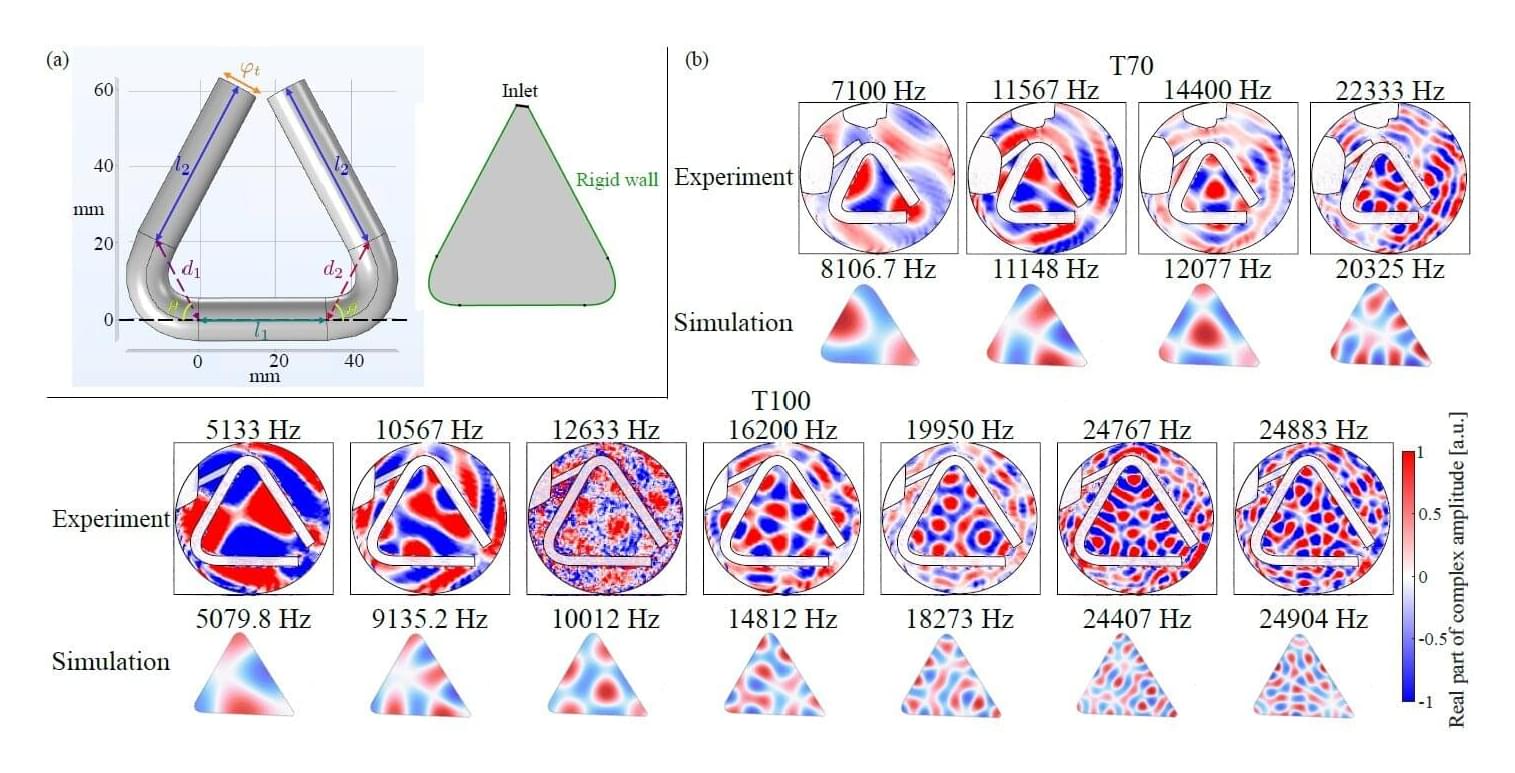
The triangle is a small instrument made of a metal rod bent into a triangle shape that is open at one corner. While small, its sound is distinct, with multiple overtones and nonharmonic resonance. But what causes the surprisingly powerful sound?
“The triangle instrument produces enchanting and beautiful tones, raising deep and profound questions about the connection between music and physics,” author Risako Tanigawa said. “Optical sound measurement has only been applied to limited subjects until now. By observing the sound field of a triangle for the first time, we captured phenomena not previously explored through microphone observations.”
In a paper published in JASA Express Letters, Tanigawa and colleagues at NTT Corporation and Waseda University in Japan captured sound fields around musical triangles.
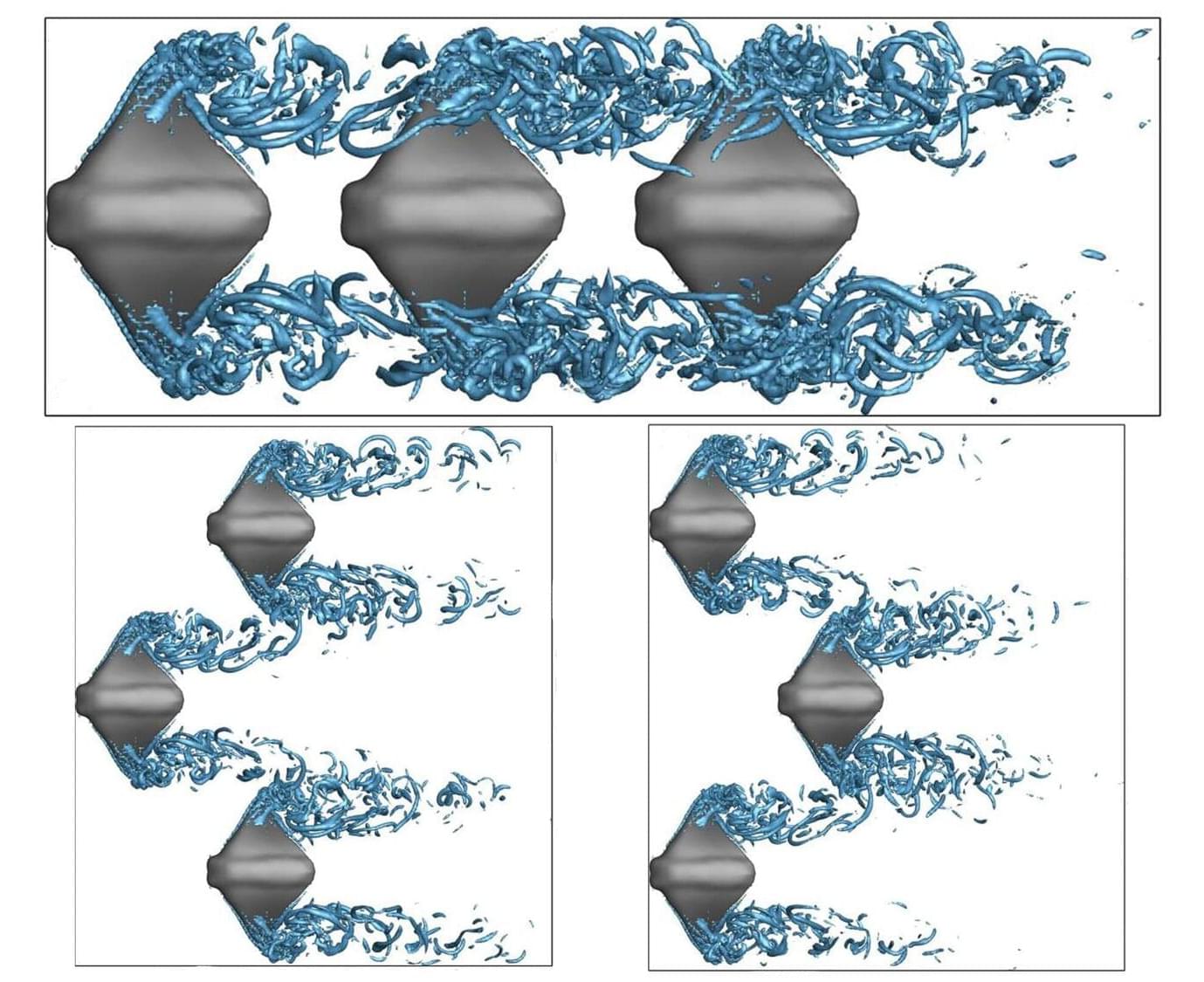
From bird flocking to fish schooling, many biological systems exhibit some type of collective motion, often to improve performance and conserve energy. Compared to other swimmers, manta rays are particularly efficient, and their large aspect ratio is useful for creating large lift compared to drag. These properties make their collective motion especially relevant to complex underwater operations.
To understand how their group dynamics affect their propulsion, researchers from Northwestern Polytechnical University (NPU) and the Ningbo Institute of NPU, in China, modeled the motions of groups of manta rays, which they present in Physics of Fluids.
“As underwater operation tasks become more complex and often require multiple underwater vehicles to carry out group operations, it is necessary to take inspiration from the group swimming of organisms to guide formations of underwater vehicles,” said author Pengcheng Gao. “Both the shape of manta rays and their propulsive performance are of great value for biomimicry.”